Acting Your Age
On Romancing the Blog this morning, Kassia Krozser made some good points about the romance genre - along the lines of it being out of touch with pop culture. As in the heroines are supposedly in their twenties, but act more like they're in their 40's. I agree wholeheartedly. Many romance heroines seem to be 25 going on 45. They don't go bar hopping, they listen to classical music, they own their own businesses, are already divorced with children, etc. I'm TOTALLY generalizing here and I know there are many exceptions to the rule - but you get the point.
I think what's behind this idea is simple. One, the authors themselves are oftentimes in their 40's, 50's, and 60's. So they're writing the world they live in, even if they say on paper their character is 25. Second, much of their audience is older as well and probably would prefer to read a story about a character that relates to them and their life. And it's important they have the opportunity to do so. After all, at the end of the day, a lot of romance is escapism fantasy.
So then, why not simply make the character older? Well, some lines are starting to do this. We now have mom lit, lady lit, Harlequin's new NEXT line, and lots of women's fiction books. These types of books celebrate the fact that you can still be hip when you're over 30. Can still be searching for "the one" at forty. Maybe it's the second time around, but that's okay. And you can still have an enchanting, once-in-a-lifetime fantasy romance at fifty. It's good to see the industry is now accepting the fact that women are still worth writing about after they celebrate their thirtith birthday and I hope this trend continues.
But now, Kassia's point was that younger readers aren't going to be interested in reading traditional romance because it's characters are unrealistic 20-somethings who are unhip. (She used maybe a bad example of classic rock, which people jumped on, but the point is still well-taken.) The younger reader wants the same thing an older reader does. To read about characters they can relate to. And I think that's why chick lit has become such a phenomenon. The chick lit heroine listens to retro 80's music and goes out clubbing with her friends - even on a work night. She drinks $9 martinis even though they're threatening to shut off her cable cause she hasn't paid the bills. She works hard at her job, but doesn't think it's the be all and end all of life. She is a reflection of the real life society we live in. And she can still fall in love, but she might do something slutty, like sleep with the guy on the first date. Or go for Mr. Wrong before she realizes she's best friends with Mr. Right.
That said, there's still a definite place on my shelf for more traditional romance. Not every character I read about has to be wearing the perfect Manolos. Sometimes I just want to lose myself in a love story. And let's face it, a good book is a good book, whether the character is meant to be 25 or 40.
After all, age is just a number.
Marianne
I think what's behind this idea is simple. One, the authors themselves are oftentimes in their 40's, 50's, and 60's. So they're writing the world they live in, even if they say on paper their character is 25. Second, much of their audience is older as well and probably would prefer to read a story about a character that relates to them and their life. And it's important they have the opportunity to do so. After all, at the end of the day, a lot of romance is escapism fantasy.
So then, why not simply make the character older? Well, some lines are starting to do this. We now have mom lit, lady lit, Harlequin's new NEXT line, and lots of women's fiction books. These types of books celebrate the fact that you can still be hip when you're over 30. Can still be searching for "the one" at forty. Maybe it's the second time around, but that's okay. And you can still have an enchanting, once-in-a-lifetime fantasy romance at fifty. It's good to see the industry is now accepting the fact that women are still worth writing about after they celebrate their thirtith birthday and I hope this trend continues.
But now, Kassia's point was that younger readers aren't going to be interested in reading traditional romance because it's characters are unrealistic 20-somethings who are unhip. (She used maybe a bad example of classic rock, which people jumped on, but the point is still well-taken.) The younger reader wants the same thing an older reader does. To read about characters they can relate to. And I think that's why chick lit has become such a phenomenon. The chick lit heroine listens to retro 80's music and goes out clubbing with her friends - even on a work night. She drinks $9 martinis even though they're threatening to shut off her cable cause she hasn't paid the bills. She works hard at her job, but doesn't think it's the be all and end all of life. She is a reflection of the real life society we live in. And she can still fall in love, but she might do something slutty, like sleep with the guy on the first date. Or go for Mr. Wrong before she realizes she's best friends with Mr. Right.
That said, there's still a definite place on my shelf for more traditional romance. Not every character I read about has to be wearing the perfect Manolos. Sometimes I just want to lose myself in a love story. And let's face it, a good book is a good book, whether the character is meant to be 25 or 40.
After all, age is just a number.
Marianne

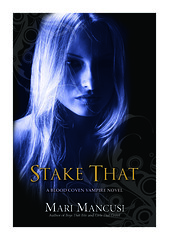
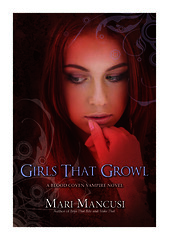






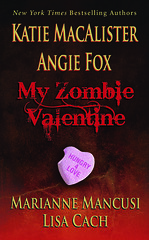

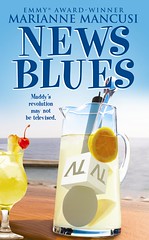

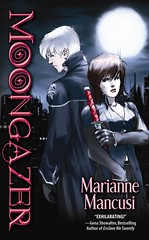
No comments:
Post a Comment